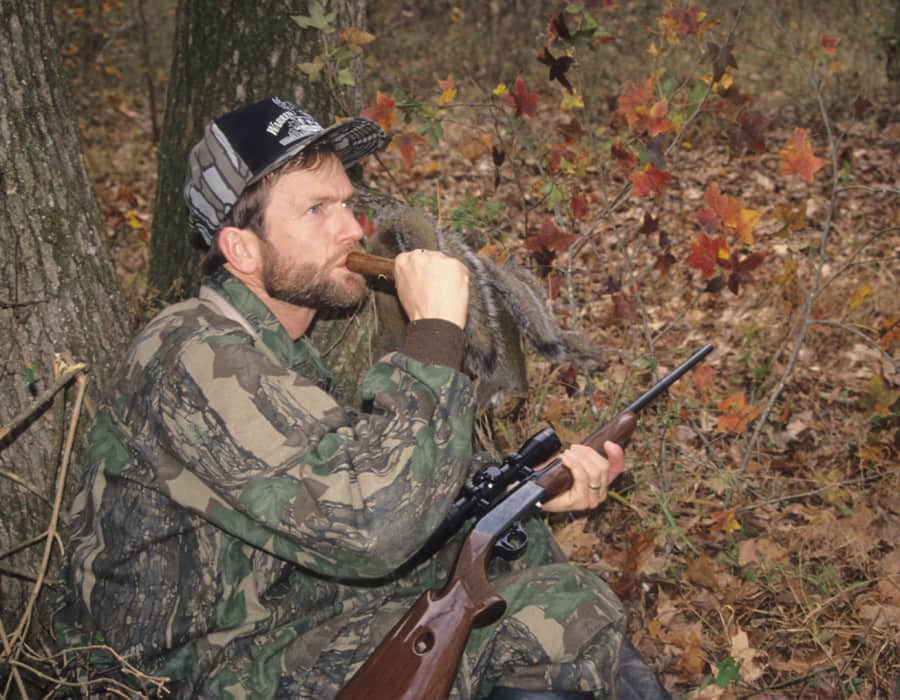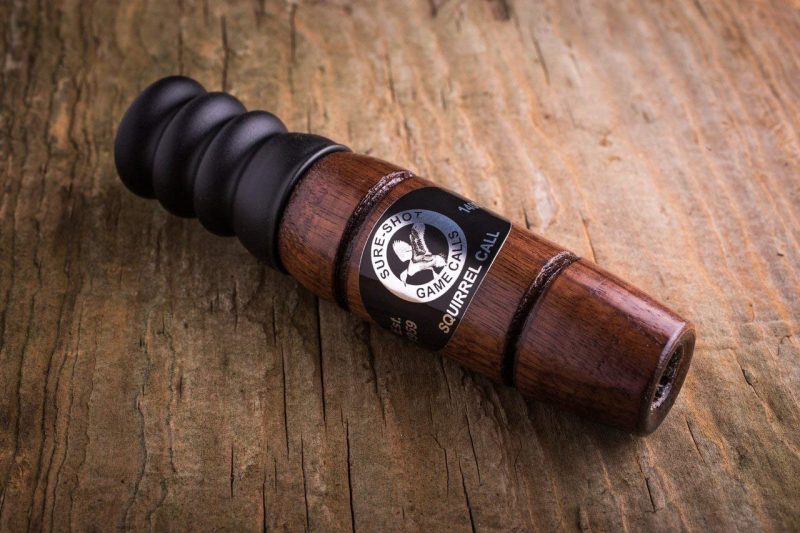Tips for Calling Squirrels to Enhance Hunting Fun and Success
Laurie Lee Dovey 08.19.14

*Updated November, 2019
Hunting is a lot of fun and a great way to spend time outdoors. It is also a great way to get kids outside and away from the digital universe we all deal with on a daily basis. The use of game calls adds a new element to hunting. It makes it more active and brings the challenge of communication to the hunt. Much like waterfowl or elk hunting, squirrels can be called in. Calling squirrels is more challenging than you might think and is a great thing to teach yourself or a young hunter. Here are some tips for calling squirrels to enhance hunting fun and success.
 How Can I Call Squirrels When Hunting?
How Can I Call Squirrels When Hunting?
There are quite a few commercially available squirrel calls on the market, but don’t be confused or discouraged. Here some things to keep in mind when taking on the “art” of squirrel calling:
- Ignore concerns about calling. It’s a useful tool for hunters of all skill levels. You can’t really make a mistake when creating the basic squirrel sounds. Like humans, squirrels have different styles and rhythms of communication and even falter when calling. Your mistakes won’t send squirrels running away.
- Learn the sounds squirrels make in different situations and what message the squirrel call sounds convey.
- Use calling as a blending method, just as you use camouflage.
- Call to control the hunting situation, to get squirrels moving, give away their locations, calm nervous animals, or entice squirrels to move to your position.
- Incorporate other natural calls into your repertoire. Turkey, owl, crow, and other calls help you create a normal-sounding environment or even prompt a squirrel to call or move.
- Think about what you’re trying to say when determining call volume and rhythm.
- Keep the size of the hunting area in mind. Squirrel hunting takes place in relatively close quarters. Ultra-loud calling to reach squirrels 200 yards away is a waste of effort. Focus on a circle 50 yards around your position.
- Call loudly or softly, fast or slowly, depending on the situation. On foggy, rainy, and windy days ramp up the volume. In quiet woods, match the mood with some softer calls, or bellow out a call to wake up the woods or stop a running squirrel. Experiment!
- Focus on the primary goal of calling: to get squirrels to give away their locations by forcing them to vocalize or move.
- Know when not to call. In active woods, where squirrels are moving and vocalizing, calling might cause them to become silent or still.
- Stifle urges to overcall. If calling isn’t getting results, moving to another location is more productive than overcalling.
- Use calling to calm squirrels after taking a shot. Stay still. Mark the downed game by a physical feature. Wait a while, at least 10 minutes, to allow the woods to calm down. The use basic contented calls to convey the message all is well in the woods to get the squirrels to go back about their business. Oftentimes you can even call them back into the area.
- Consider calling to moving squirrels if or when they are quickly moving away from you. An excited call or even predator call can signal danger and cause the squirrel to stop long enough to offer a shot.
Calling squirrels is no different than calling other game animals. It doesn’t work 100 percent of the time, but more often than not it will give you an edge. Don’t expect miracles and employ patience and you’ll find calling a great tool in your squirrel hunting arsenal.
What Do A Squirrel’s Calls Mean?
The three varieties of squirrels found in North America are the red squirrel, the fox squirrel and the grey squirrel, which is commonly found in both grey and black color phases depending on where you are. All of these squirrels make the same basic vocalizations.
There are five basic sounds a squirrel makes that you can imitate. You don’t have to master all of them, and each sound is relatively easy to reproduce. And above all, remember that you don’t have to be perfect.
- The bark is used by squirrels in several different ways. When slow and moderate in volume, it generally communicates contentment. When loud and excited or when followed by a scream, the bark can mean danger and serve as a warning signal.
- A scream is used by squirrels to let others know they are excited about something. Often the sound is made in a playful situation, and other times when squirrels see something they don’t recognize. Squirrels rarely scream as a sign of danger unless the scream used in combination with an excited series of barks.
- Cutting is the most unusual of the squirrel sounds because it’s not a vocalization—it’s the sound made when a squirrel cuts (breaks) into a nut with its front teeth. It’s most often heard early in the season when the mast crop is abundant. It can be extremely alluring at times when nuts are not as bountiful, enticing squirrels to move to the animal they hear eating—you.
- Chatter is a contented communication made year-round. It conveys a message of normality and wellbeing. Chatter calls tell others in the area “There’s no danger here.”
- Many hunters also employ a call that imitates the distress call of a young squirrel, hoping to grab the attention of squirrels in the area and shock them into barking.
What Types of Squirrel Calls Can I Get?
Most squirrel calls on the market, like the Sure-Shot Game Calls Squirrel Call, are bellows-type calls that generate a bark, excited chatter, and perhaps a distress call. The Sure-Shot call is made from dark walnut with a traditional bellows actuator. As an added bonus for deer hunters, this type of call is the perfect thing to have with you in the deer stand. If you make an unexpected noise, you can often cover your tracks, so to speak, by tapping out a couple of quick squirrel barks.
For cutting, I use an old Lohman’s Game Calls cutter made of a threaded plastic bolt with a plastic paddle scraper. You might choose to make your own cutting call from a variety of materials. Use a seven-inch coarse-thread bolt and washer (or rub the edges of two quarters together) to emulate cutting.
A young squirrel distress call is usually made with a whistle-type call, like a Faulk’s Game Calls Squirrel Distress Call, in conjunction with a small, leafy branch. The call emulates a hawk going after a small squirrel. The squirrel whistle creates the distress while the branch flapped on the ground imitates the sound of the predator’s wings as it tries to capture the squirrel.
Do I Need to Use a Squirrel Call?
No, you can squirrel hunt without using a call. However, squirrel calls and using them while hunting is a great teaching opportunity for you and a younger hunter. It helps kids understand the animal more if he or she learns the different vocalizations and it adds a depth to the hunt by making it more proactive. You and your young hunter aren’t just sitting there, hoping a squirrel happens by, although that is a pretty decent way to spend a few hours. An inexpensive squirrel call, an orange hat and a small caliber rifle, air rifle or small shotgun, and you’re all set.



